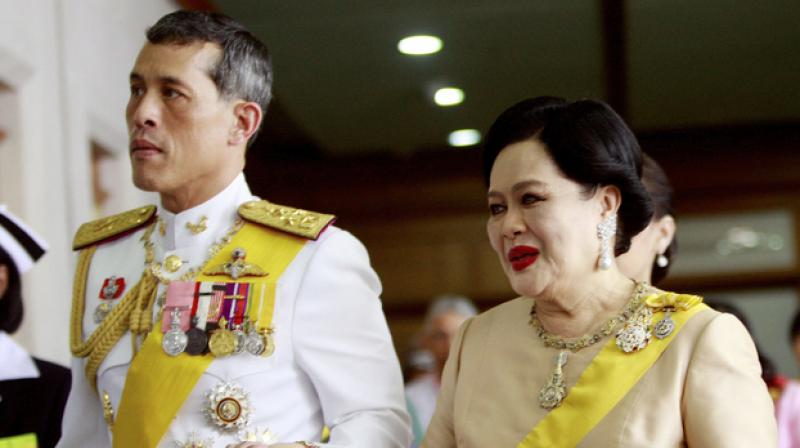Thailand passes amendment to cyber law despite opposition

Thailand's parliament passed legislation amending a cyber crime law on Friday, which rights groups have criticised as likely to lead to more extensive online monitoring by the state.
Thailand's military government has ramped up online censorship since it seized power in a 2014 coup, in particular to block perceived insults to the royal family.
Thailand has some of the world's toughest laws against royal insult, which has curtailed public discussion about the monarchy's role following the Oct. 13 death of King Bhumibol Adulyadej, who was seen as a unifying figure.
Since the death of King Bhumibol, authorities have shut down hundreds of websites carrying what they consider contentious or critical material about the monarchy in a bid to ensure a smooth royal transition.
The government is also sensitive about what it sees as criticism of the military's role in politics, and opposition to its seizure of power in 2014.
The National Legislative Assembly voted unanimously to pass an amendment to the 2007 Computer Crime Act in a third reading.
"Parliament agreed to enact the draft amendment," said Peerasak Porchit, the NLA's vice president, at the end of a televised parliamentary session.
Critics say the amendment raises the likelihood of increased censorship and arbitrary invasion of privacy.
Prime Minister Prayuth Chan-ocha has defended the need for cyber controls, dismissing the suggestion it constituted a violation of rights.
The amendments, seen by Reuters, would allow state officials to obtain user and traffic data from service providers without court approval.
Any websites seen as a threat to national security or "offend people's good morals" can also be removed or suspended.
Previously, the law said officials needed court approval to remove content.
Yingcheep Atchanont of the legal monitoring group iLaw said the revised law would extend control over cyberspace and dissent.
"Blocking websites and persecuting critics ... will make us unable to criticize the government at all," he told Reuters.
An online petition led by the Thai Netizen Network, an internet freedom advocacy group, gained more than 360,000 signatures and was handed to the assembly on Thursday.
The amendment will be submitted to King Maha Vajiralongkorn, who succeeded his father on Dec. 1, for royal endorsement.
Parliament is due to consider a cyber security bill and a data protection bill next year. Critics have said both raise more privacy concerns.
The military government has promised to hold an election next year.

